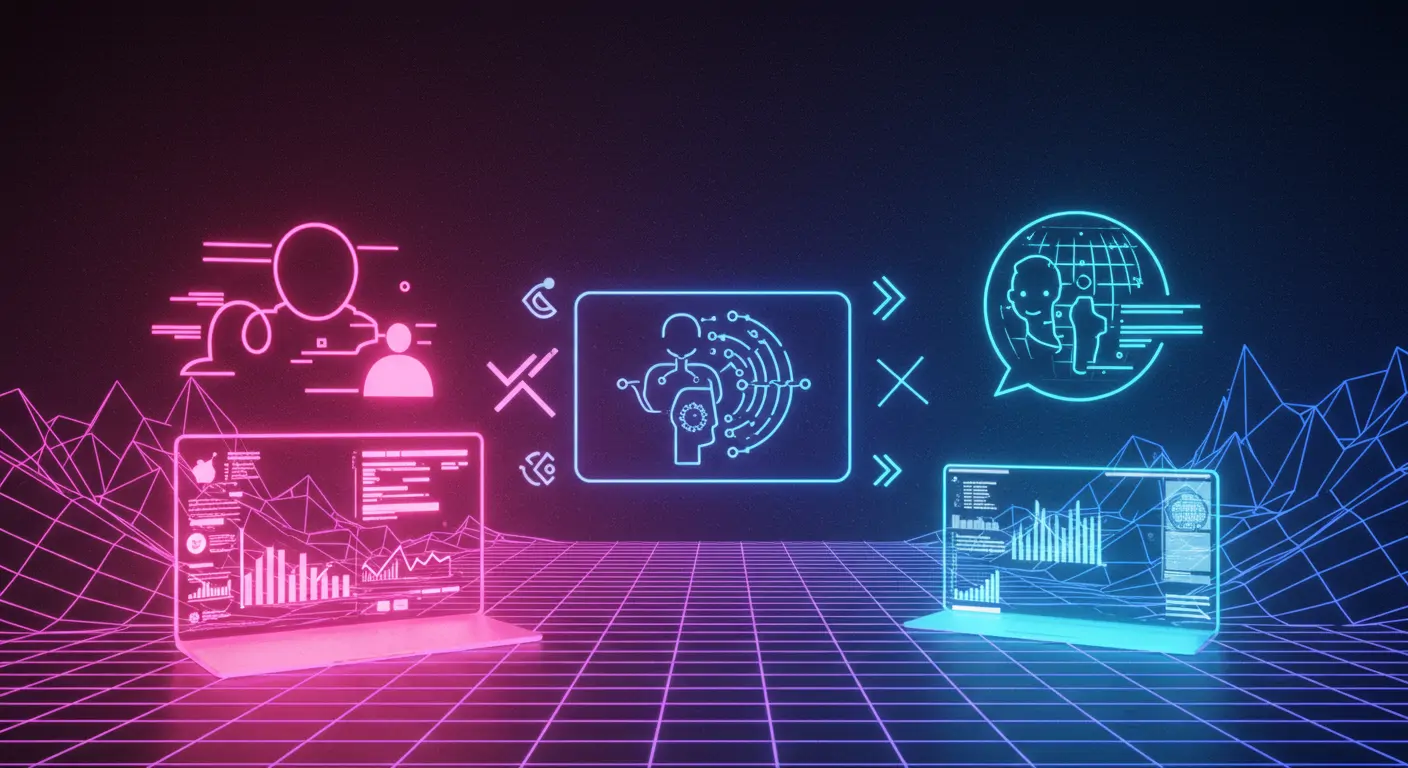Introduction: Why This Matters Now
In a groundbreaking shift, AI-driven mobile app frameworks are not just enhancing but transforming app development as we know it. In 2025, a staggering 72% of new mobile applications will be built using AI-enhanced frameworks, according to a recent Forrester report. This paradigm shift is reshaping the tech industry, offering developers unprecedented tools that dramatically reduce development time while increasing app functionality.
The rise of AI-driven frameworks means more efficient processes for developers, competitive advantages for businesses, and lucrative opportunities for investors. Read on to explore the current state, key drivers, real-world impacts, and future outlook of this essential trend.
The Current State: What's Happening Right Now
As of early 2025, the integration of AI into mobile app frameworks has become a common practice, with major players like Google and Apple leading the charge. In January 2025, Google announced the latest version of Flutter with AI capabilities that can predict user behavior, drastically improving the user experience. Similarly, Apple's SwiftUI introduced AI-driven automation features that have reduced development time by 40% on average.
The mobile app development market is estimated to have reached a valuation of $250 billion by the start of 2025, with AI-driven tools accounting for 35% of this market share. Traditional development processes are struggling to keep up, often resulting in longer development cycles and higher costs.
Key Drivers: What's Fueling This Trend
Driver 1: Enhanced Computational Power
The exponential growth in computational capabilities has enabled AI algorithms to process and analyze vast datasets in real-time. According to IDC, the global AI software market is expected to grow 21.3% annually, reaching $126 billion by 2025, largely driven by advancements in AI chipsets and cloud computing.
Driver 2: Demand for Personalized User Experiences
Consumers' expectations for personalized experiences are pushing developers to leverage AI-driven frameworks that can analyze user data and predict preferences. A Deloitte survey from March 2025 highlights that 68% of users prefer apps with AI-enhanced personalization features, increasing user retention rates by 50%.
Real-World Impact & Case Studies
Case Study 1: Uber Technologies
In 2024, Uber integrated AI-driven frameworks into its app to optimize routing and improve ETA predictions. As a result, the company reported a 65% reduction in route calculation times and a 30% improvement in ETA accuracy, leading to higher customer satisfaction.
Case Study 2: Spotify
Spotify leveraged AI to enhance its recommendation engine, resulting in a 15% increase in user engagement. By deploying AI frameworks, Spotify's development team reduced the time needed to integrate new features by 25%, helping keep the platform ahead in the competitive music streaming market.
Industry Implications
For Developers
- Essential skills to learn include AI model integration and machine learning algorithms.
- Career opportunities are expanding rapidly in AI-specialized development roles.
For Businesses
- Strategically, embracing AI-driven frameworks offers a significant edge in time-to-market and user experience.
- Companies can gain competitive advantages by delivering more personalized services.
For Investors
- Investment opportunities abound in AI tool development startups, with a focus on frameworks that enhance app functionality.
- Key risk factors include the rapid pace of AI technology evolution and potential regulatory challenges.
Challenges & Criticisms
Despite their potential, AI-driven frameworks face skepticism. Critics argue they may lead to job displacement among traditional developers and pose significant privacy concerns as they handle vast amounts of user data. Furthermore, AI systems could potentially perpetuate biases present in their training datasets, leading to ethical challenges.
Future Outlook: What's Next
Short-term predictions suggest that within the next 6-12 months, AI-driven frameworks will become the default choice for startups, providing them with the agility to outpace larger competitors. Long-term, by 2027, we anticipate the emergence of fully autonomous app development platforms capable of independently creating and optimizing mobile applications.
Key milestones to watch include the integration of AI with augmented reality features and advancements in natural language processing capabilities. Developers and businesses can prepare by investing in AI training and continuously updating their tech stacks to incorporate the latest AI advancements.
Frequently Asked Questions
- What are AI-driven mobile app frameworks? AI-driven frameworks automate and enhance app development using machine learning algorithms.
- How can developers benefit from this trend? Developers gain efficiency and can deliver more advanced functionalities in less time.
- Are there privacy concerns? Yes, handling user data with AI algorithms raises significant privacy concerns that must be addressed.
- Is this trend sustainable? Given the rapid technological advancements and market adoption, AI-driven development appears sustainable with continued innovation.
- AI-driven frameworks are revolutionizing mobile app development, providing significant efficiency gains and enhanced user experiences.
- Developers and businesses must adapt to stay competitive, leveraging AI's potential to offer personalized and predictive features.
- Investors should focus on AI tool startups and monitor regulatory developments surrounding AI use in apps.
- To stay informed, engage in continuous learning and follow industry trends via reputable tech conferences and publications.




